The School of Modern Theatre
A collection of memories left by researchers, artists, groups and collectives of their time at Fraykeh. Documentary, audio-visual, written or poetic echoes, and questions about the mechanisms of memory.
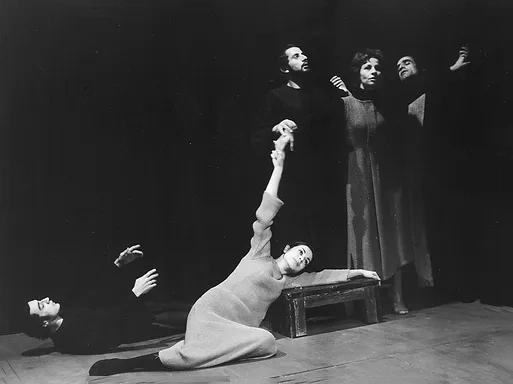
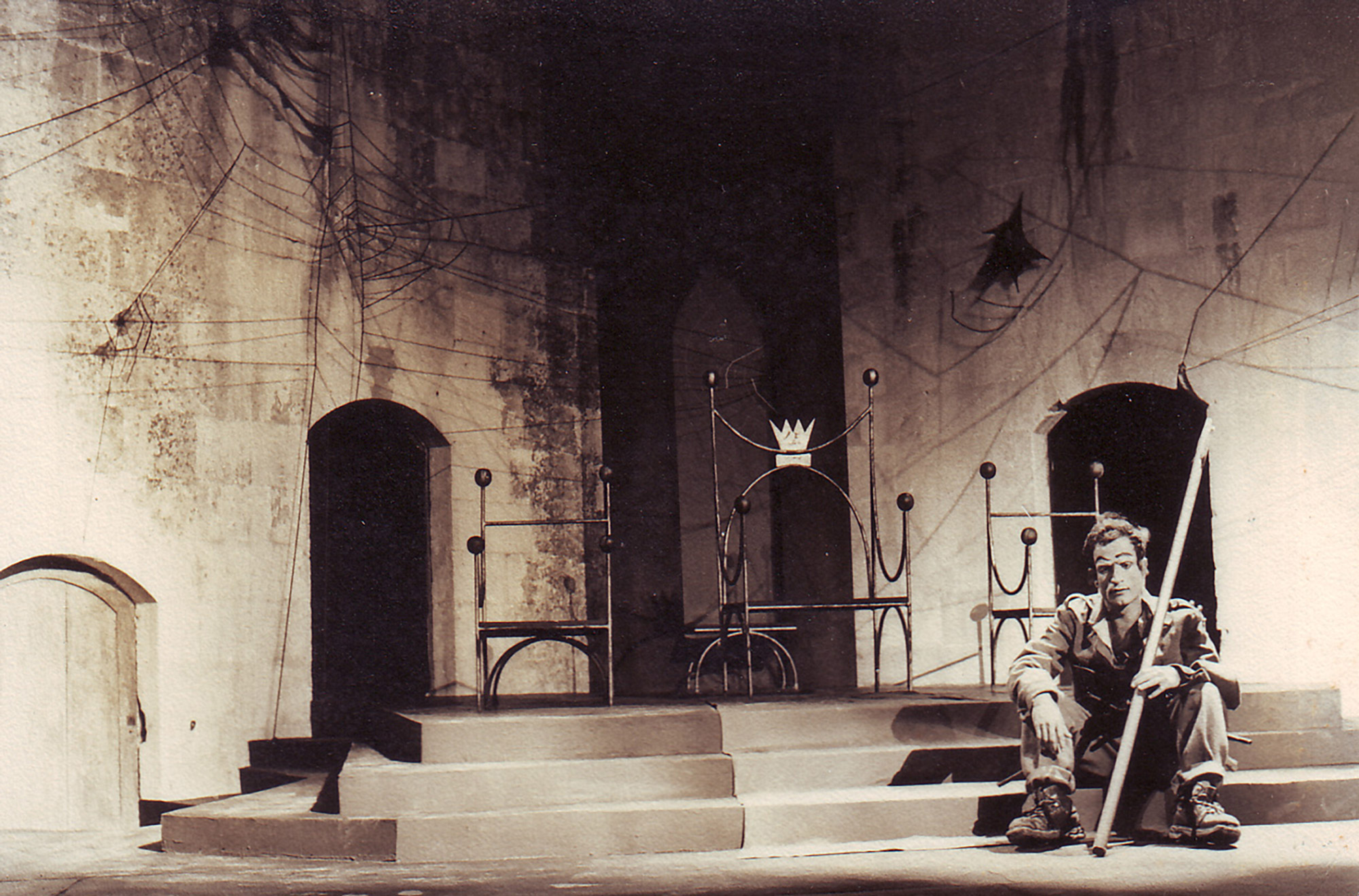
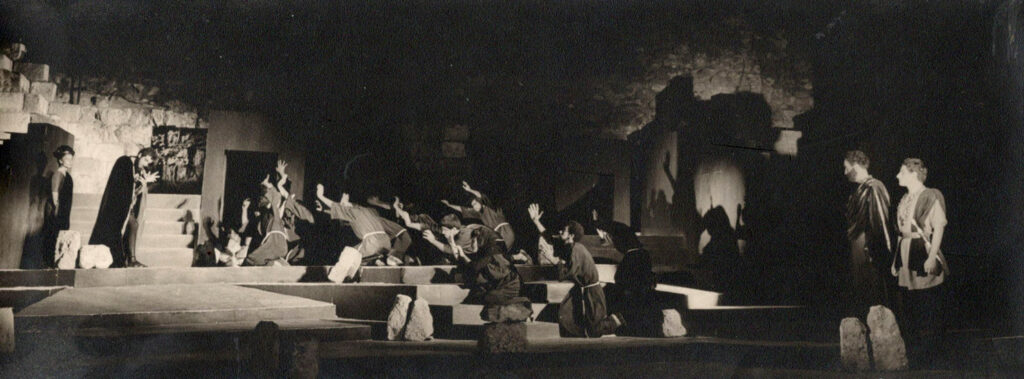
The personalities of Fraykeh
Fraykeh is a village in Metn, halfway between the coast (Antélias) and the mountains (Beit-Chebab, Bikfaya, Dhour-el-Chouer) and around twenty kilometres north of Beirut, after Rabieh, Mazraat Yechouh and Qornet-el-Hamra.
Emblematic for its cultural importance, Fraykeh has enabled several personalities from the world of literature (Ameen RIHANI), journalism (the MOUKARZEL brothers) or art (Mounir ABOU-DEBS for theatre and Alfonse PHILIPPS for painting and sculpture), to make a lasting mark on different eras. At the same time, Fraykeh has managed to preserve its rural character, with small-scale agricultural activities in the lower part of the village.
Situated on a hillside, facing the deep valley of Nahr-el-Kalb, the village benefits from an exceptional geography and unobstructed view.
The setting for this developing socio-cultural centre is a nineteenth-century silkworm farm, a historic monument remarkable for its architectural qualities and its natural environment.
Mounir Abou Debs 1931–2016
Born in Fraykeh, in a traditional house still owned by the family, he is a director and founder of the Ecole du Théâtre Moderne de Beyrouth (first theatre school in Lebanon in 1960). He was artistic director of the Baalbek International Festival from 1960 to 1970. For some twenty years he ran workshops for professional actors in France, at the Maisons de la Culture in Rennes and La Rochelle and at the French Ministry of Culture.
He has directed some forty plays by Sophocles, Shakespeare, Goethe, Buchner, Camus, Sartre, Brecht, Ionesco and Rítsos, in Beirut, Cairo, Paris and La Rochelle, at the international festivals of Baalbek, Byblos, Beiteddine, Berlin and Volubilis, and at the Théâtre National de l’Odéon in Paris. His last productions at the Fraykeh Festival from 1999 to 2008 were by Shakespeare, Ionesco, Chekhov, Schmitt and several of his own texts. He is the author of several books, including L’Acteur sans masque, Notes pour un acteur, L’Acteur et le vide…
In his school, he has developed a style of working for the actor that began with the theatrical views of Stanislavski and Gordon Craig, and is now imbued with an Eastern vision.
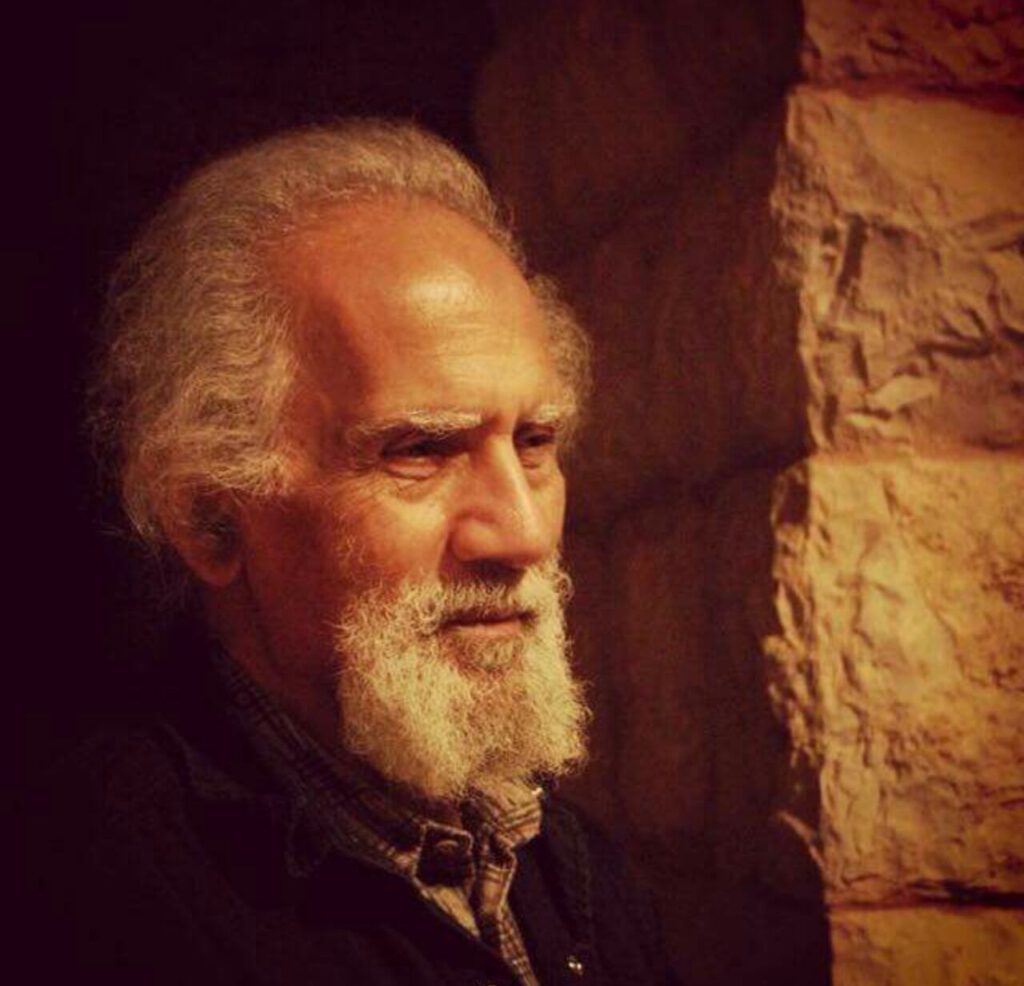
Mounir Abou Debs
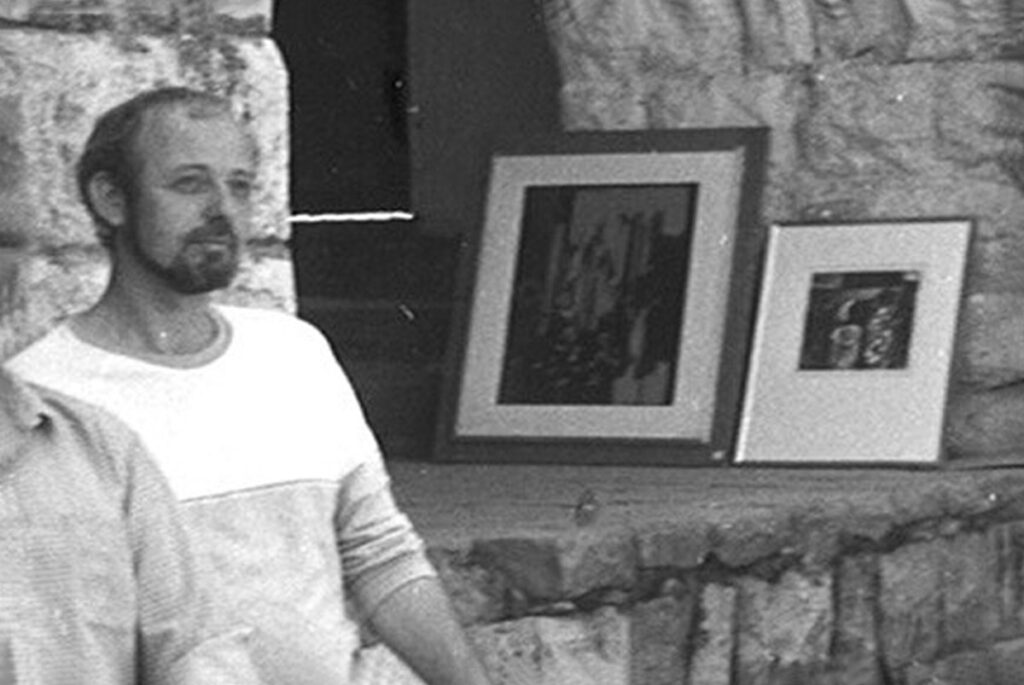
Alphonse Philipps
Alphonse Philipps 1940–1987
A German painter and sculptor who came to live in Beirut around 1965, because his artistic quest brought him closer to oriental art and culture, Alfonse PHILIPPS was very attracted to the symbolist language of a GIACOMMETTI, Paul KLEE, KANDINSKI and others.
He very quickly became involved with the young Lebanese artistic movement of the 60s, which held out great hope of renewal and of opening up to new expressive horizons between orientalism and modernity; he became friends, in particular, with Mounir ABOU DEBS, a theatre director and poet in Arabic and French and founder of the Ecole du Théâtre Moderne de Beyrouth, the first professional school in Lebanon.
Because of their great affinity, Alfonse PHILIPPS became his regular set designer until 1976, the start of the dark civil war, without diminishing his personal work of great spiritual and evocative value. In 10 years of intense collaboration, through innovation in text and acting on the one hand, and in stage space and character development on the other, they made a major contribution to lifting the theatre out of its local image and projecting it permanently into the contemporary world of Lebanon.
Alfonse PHILIPPS settled in Fraykeh with his family, in a traditional flat-roofed vaulted house, just above the mausoleum of the MOUKARZEL brothers, journalists from the 1930s, towards the top of the village. From 1965 until 1987, he set up three studios in different parts of the village, the last of which was in the silkworm farm owned by the ABOU-DEBS family and which became the Maison des Arts et de la Culture de Fraykeh (MAFk).
Endowed with a deep and demanding sensibility, he has always been in search of an extremely subtle and authentic expression of the substance of the material he highlights, somewhere between Germanising rationality and orientalising mysticism. His work essentially consists of bringing together objects, materials and textures that are, on the face of it, banal, unimportant or deteriorated, in order to turn them into artistically powerful acts in non-conforming compositions or assemblages, and to produce a surreal and unexpected structure that brings people who discover his works through several exhibitions in Beirut and other cities in the country a significant level of unconscious astonishment, in the serenity and coherence of the inexplicable.
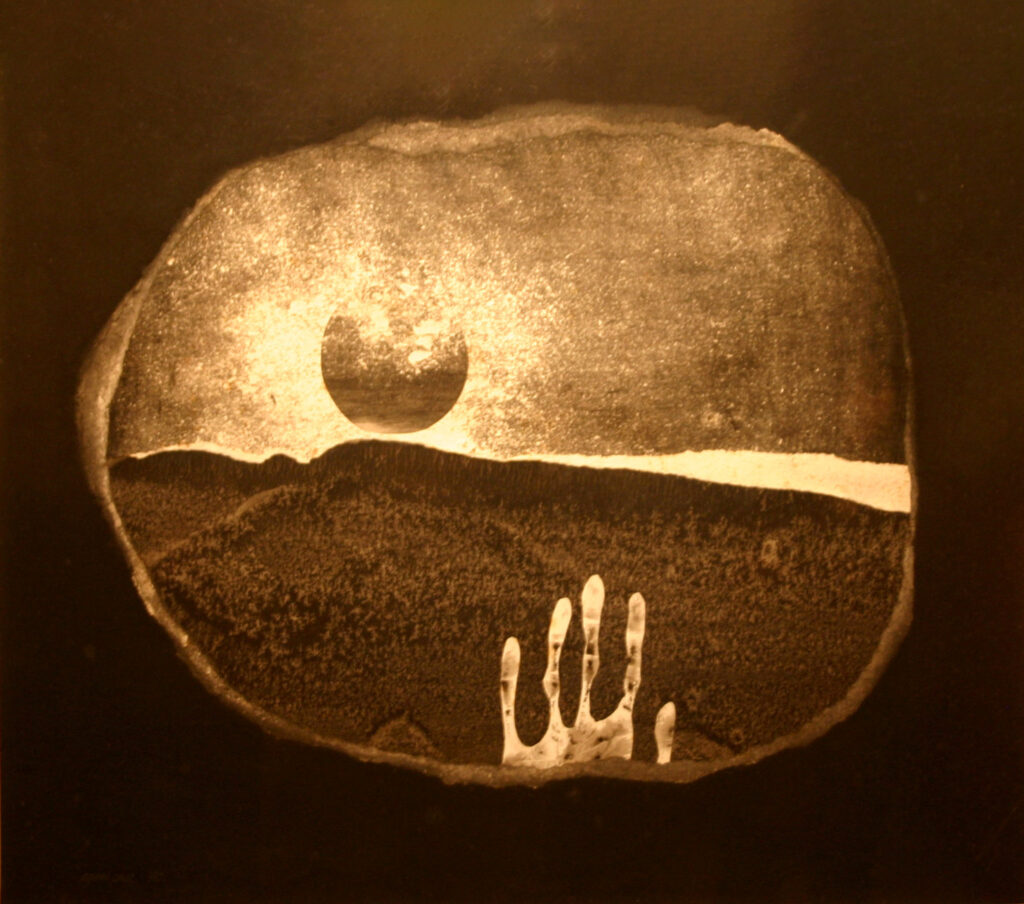
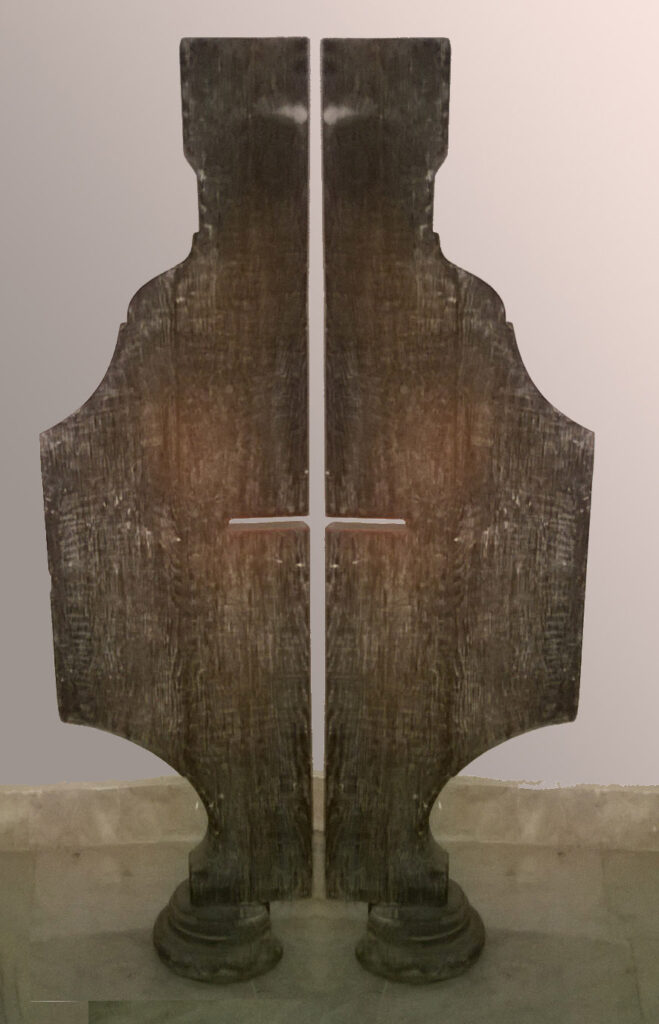
As with Mounir ABOU-DEBS in his theatre and poetry, his work is far removed from the overabundance of representation in our modern societies, dominated by agitation and ephemeral pleasure, and instead questions the essence of our existence, in the simplicity of our being.
This is why MAFk, which plans to set up a museum space for the Beirut Modern Theatre troupe, cannot but share it with the work of Alfonse PHILIPPS, who has been an important part of it.

